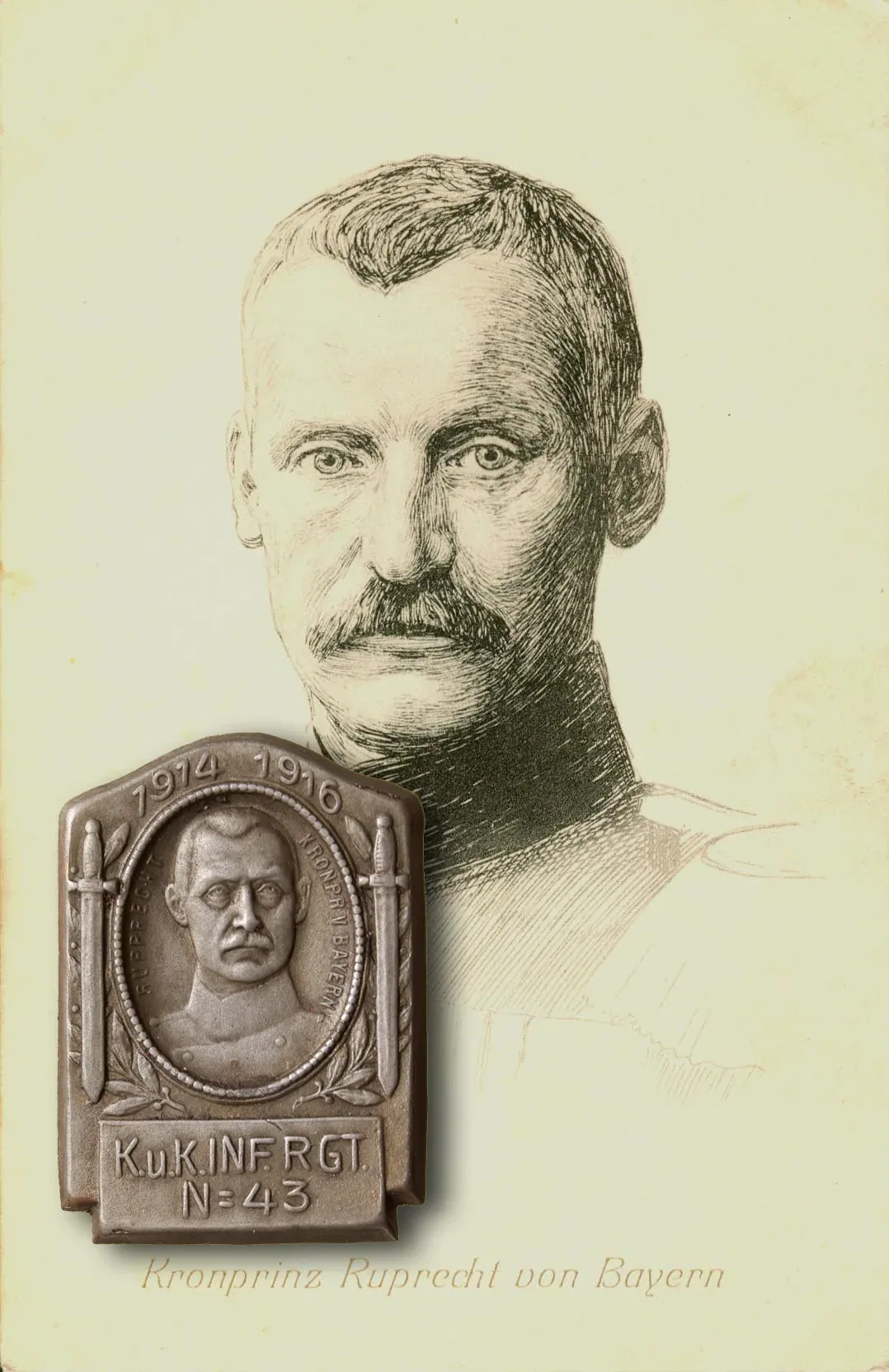Ruprecht, crown prince of Bavaria
The regiments of the Monarchy had regiment owners. This title used to be symbolic, but previously it was the duty of the regiment owners to set up the formations and finance their operation. By the 20th century, the title was often used more to foster diplomatic relations. For this reason, the Bavarian Crown Prince Ruprecht could also become a regimental owner, namely the 43rd Infantry Regiment. The ARKANZAS badge features his portrait and name.

Some important autobiographical facts about Ruprecht may be interesting to share. He was born in 1869 in Munich. He was the last Bavarian Crown Prince to officially hold this title until the end of the war. He was the eldest son of III. Louis of Bavaria. Her mother was the Austrian Archduchess Maria Theresa, who came from the Este branch of the Habsburg family. Ruprecht studied extensively, traveled, and engaged in the arts.
In 1886 he began his military career as a lieutenant in a German Imperial Artillery Regiment. As was the custom of the age, he progressed rapidly up the ladder. Already in 1900 he became general, and also appointed commander of the 7th Bavarian Infantry Brigade. In 1913, before the outbreak of the Great War, he succeeded his uncle as Chief Inspector in the Bavarian Armed Forces. In August 1914 he was appointed commander of the 6th German Army. The self-righteous Bavarian general soon clashed with the Prussian-dominated and spirited military top leadership, specifically Chief of Staff Falkenhayn. Despite all this, he still received important positions. In 1915 he received the German Order of Honor, and in 1916 also the oak leaves. He served on the French front, later as commander of an army group. While he had previously considered Falkenhayn’s military leadership to be overly cautious, by 1917 he realized that the power of war opponents had been underestimated and that their growing superiority projected the defeat of the German Empire.

Following the defeat in the war, the institution of the Kingdom of Bavaria also ceased to exist. On November 8, 1918, the leaders of the Bavarian Revolution declared the abolition of the kingdom. After the death of his parents, from 1921 he became the head of the Wittelsbach family. He lived in Berchtesgaden and Munich, respectively, during the Weimar Republic. He did not shy away from politics and, in a compromise with the Republican authorities, was able to retain some of the family’s wealth. In 1932/33, at the request of the Social Democrats, he was prepared to take over as governor of the province under Bavarian law if Hitler came to power, but this did not happen in the end. After the Nazi takeover, after continuous political harassments he moved to Italy in 1939, where he lived until the end of the war. In 1944, due to direct German presence in Italy, he had to hide from the Gestapo in Italy. His wife and children were taken to the Dachau concentration camp. The monarchist aspirations represented by Ruprecht could not be enforced even after 1945. He died in 1955.




